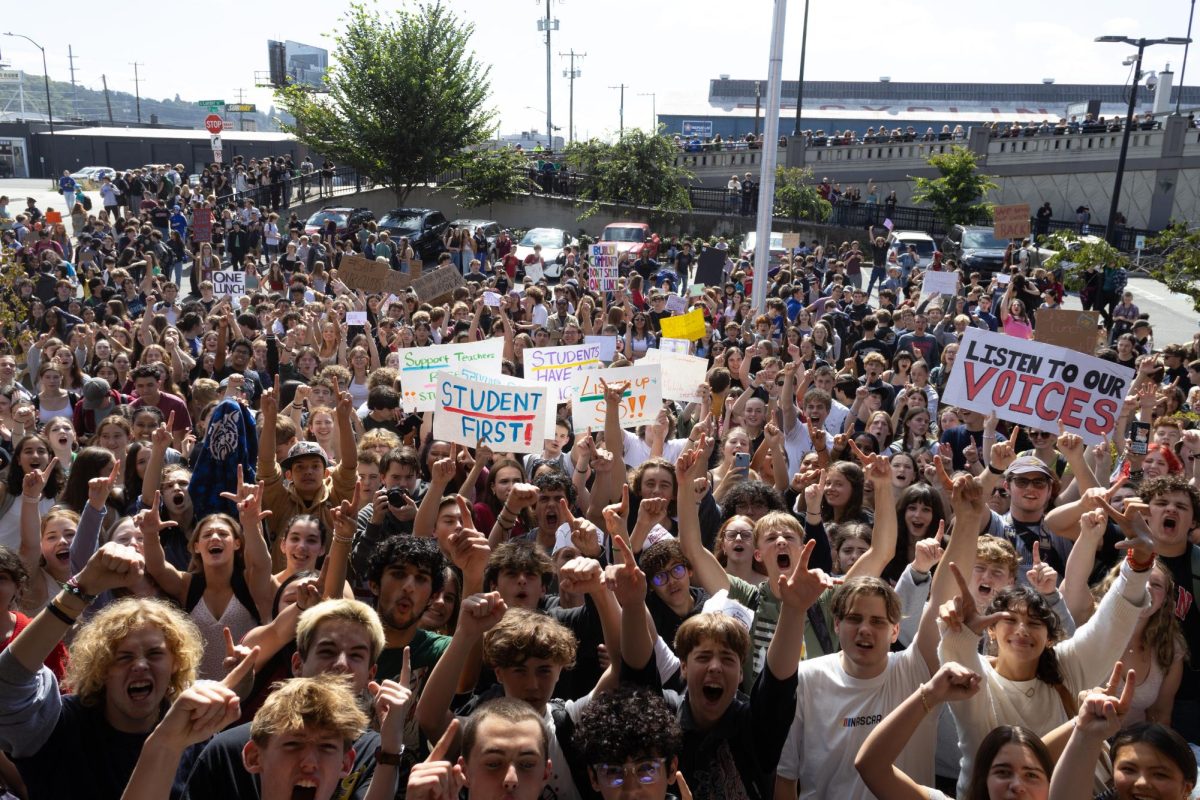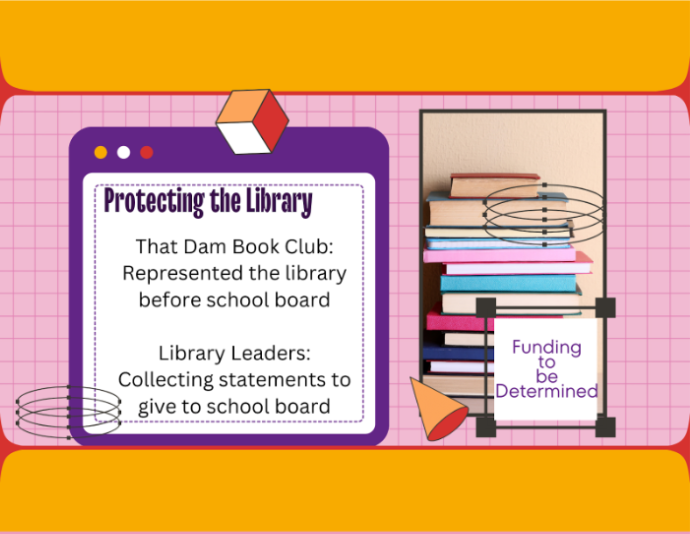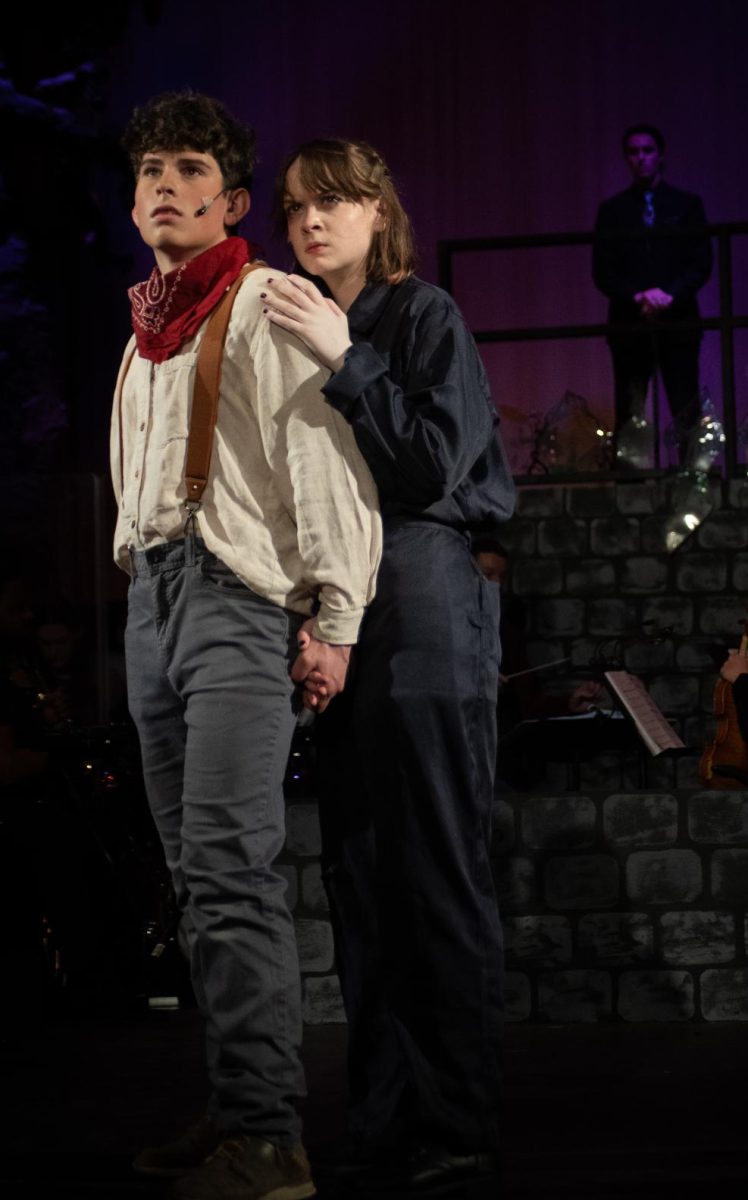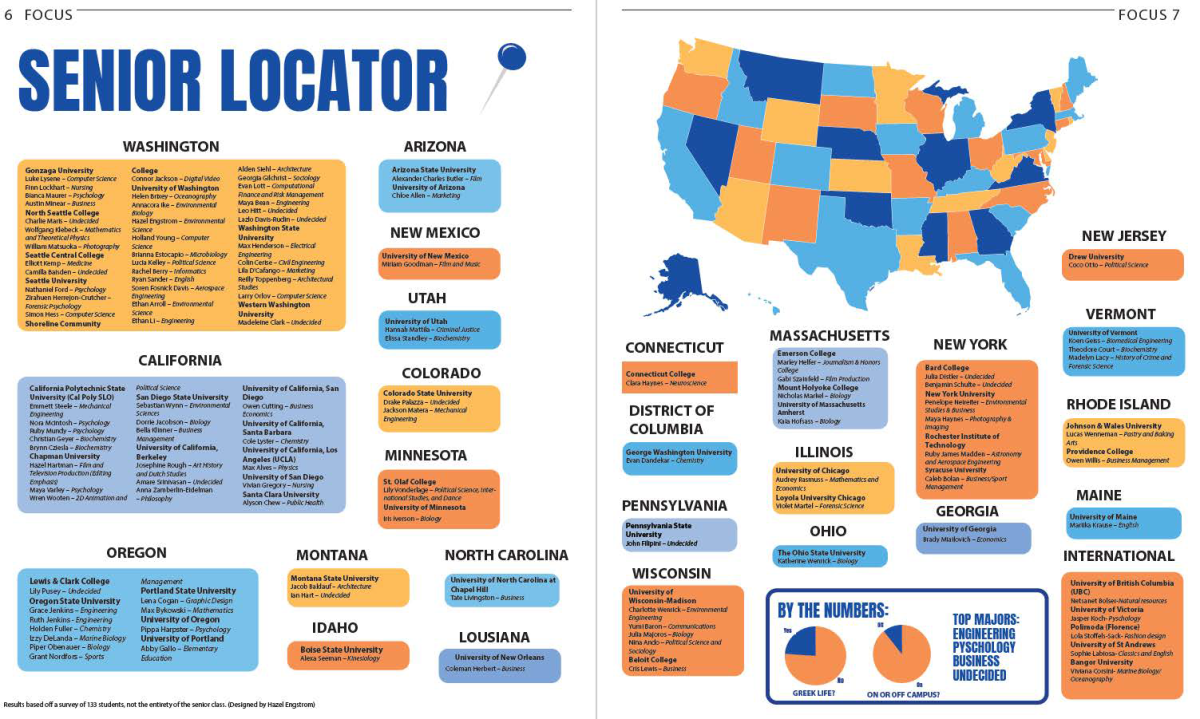In the face of a budget deficit, Seattle Public Schools is considering greatly reducing district-wide funding for high school librarians and will decide by May 15.
While the district is currently providing enough funding for the libraries to maintain full function, it reserves the right to halve funding at any point before May 15. The district’s high school libraries would then need to reduce their open hours.
“It would look like Monday, Tuesdays and every other Wednesday,” librarian TuesD Chambers said. “Completely closed on Thursdays and Fridays and some Wednesdays, or open from 8:30 a.m. to 11:30 a.m. then closed. Or open in the afternoon.”
The district is responding to a budget deficit of $98 million dollars. They have been dealing with this deficit for several years, and previously proposed shutting down several schools to help close the gap.
An April 2024 Seattle Times article stated that the deficit is partly based on the end of federal COVID relief money; which the district had previously used to help close financial gaps, as well as declining district-wide enrollment leading to lower state funding.
The Weighted Staffing Standard Committee (WSSC), a district-wide group of principals, union leaders and other people related to the district, recommend budget plans for the Superintendent. In a November survey available on the Seattle Public Schools website it ranked cuts to librarian employment out of a list of seven possible cuts as the second “least damaging to student outcomes.”
In a Jan. 22 School Board meeting, Kurt Buttleman, a member of the Superintendent Senior Cabinet, said the survey was a “formative exercise,” disconnected from any concrete budget proposal.
News of the WSSC’s position provoked several advocates for the libraries to speak at board meetings over December and January. In the Jan. 22 meeting, several people associated with Ballard High School attended, each backed by a small group holding signs with slogans such as “Libraries Make Schools Better” and “Save Our Libraries.”
According to That Dam Book Club leader Rowan Harper, Ms. Chambers came up with the idea to make the signs and That Dam Book Club helped make them.
Chambers and David Furman, special education teacher, spoke at the meeting. Furman explained the value of the library to the students with intellectual disabilities who he teaches and the origins of Pride Book Club as a community for queer students isolated after COVID shut down pride marches.
“‘They needed to be seen, they needed community, they needed to have a group to come together,” Furman said. “So we, with our librarians, with our teachers, put something together, and that only happens with librarians.”
Furman feels that Washington State is not meeting its moral obligation to fully fund education, as evidenced by the libraries’ current precarious position and the cut of the library assistant from a full-time to half-time position in the 2023-2024 school year.
“We have a budget crisis, we all know that,” Furman said. “But if we can’t invest in our students, in our future, who should we be investing in?”
However, Superintendent Brent Jones hopes to get $30 to 60 million more from the Washington State government than currently confirmed; this would allow the district to avoid cutting employment. Buttleman said in the Jan. 22 meeting that getting this amount of money might be plausible- citing 2024 legislation which gave $24 million to the district.
Chambers said full library funding could survive if the state government passed S.B. 5551, a bill which would require all school districts to ensure all students have library access, or if the board committed to saving it. “We need school board members to put in writing that they will not approve any budget where librarians are cut,” she said. “It is only a $2.7 million dollar save of $98 million.”
Currently, two clubs have advocated for continued full library funding. Library Leaders, which helps decorate and manage the library, has presented statements from club members about the libraries’ value at school board meetings and is considering similarly presenting statements by other students.
“During one of the online [meetings] which I attended…,” club leader Abby Paulsen said, “somebody shared how it made them feel more included when they were a freshman, they didn’t have lots of places to go but that was where they could go and find somewhere to be that they felt like they were included. And one of the school board members was like ‘wow, I didn’t think of it like that,’ because clearly his experience with libraries must have been more like go, check out a book, that’s it, less of the community building.”
Paulsen is unsure how much of an effect the statements have, noting both that the deficit is a severe and multifaceted problem and that the board has already shifted to a less severe plan. “It seemed like they were moving headstrong, ready to close the library sort of thing,” Paulsen said. “And they seem to have slowed, so I think the statements are making a significant change.”
Harper, who has been involved since the end of her freshman year, was among the advocates who presented at the Jan. 22 meeting.
“After seeing how much of being in a book club impacted me, and how Ms. Chambers has provided countless resources over the years I’ve been here at Ballard, I felt like I needed to help Ms. Chambers out,” Harper said. “The only way I felt like SPS would listen was if a student spoke up about it.”
Harper found speaking before the board frightening and difficult, especially given the requirement to stay within a two-minute time limit.
“Once I started getting into the rhythm of what I was talking about, a lot of passion swooped in,” Harper said. “So it got easier as I spoke more, but it was definitely a scary step up.”
Harper feels that the effort the community put in to protect the libraries made an impact on the board, but it probably will still cut funding. With more meetings coming up, That Dam Book Club wants to do something more to protect library funding, though it doesn’t yet know what.
“I can’t believe I’m standing here along with many others,” Harper said at the meeting, “making this point in front of you, that I as a student have to advocate for resources that you would have been outraged to lose. For my own education, for others’ education, for your children’s education, that is who I’m currently representing as I stand up here.”






















